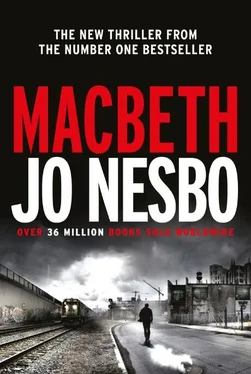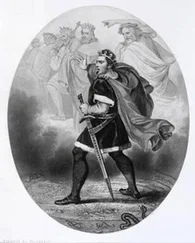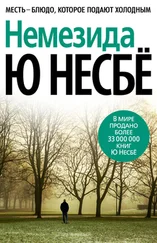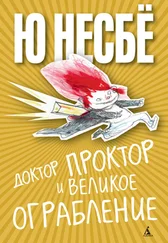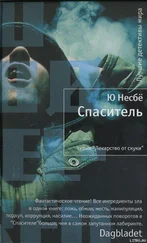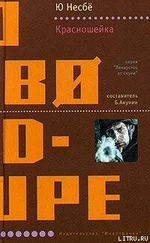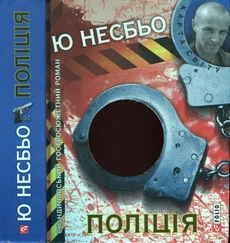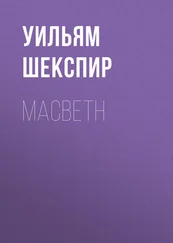The crime photographer was leaning against the garage door and smoking when Duff came out.
‘Nasty?’ he asked.
‘Sorry?’
‘Cutting off his head like that.’
‘Murder’s always nasty,’ Duff said, making for the exit.
Lady was in the bedroom, standing in front of the door to Macbeth’s wardrobe. Listening to the sound of wet rats scurrying across the wooden floor. She told herself the sounds were only in her imagination; the floor was thickly carpeted. Sounds in her imagination. Soon it would be voices. The voices her mother had talked about that wouldn’t leave her in peace, the same voices her mother’s mother had heard — their forefathers speaking, commanding them to sleepwalk at night, to hurtle towards death. She had been so afraid when she saw Macbeth hallucinating at the table during the dinner. Had she infected her only true love with this illness?
The scurrying rat feet had been in her imagination a long time now and they didn’t want to disappear.
All she could do was scurry herself. Away from the sounds, away from her imagination.
She opened the wardrobe door.
Pulled out the drawer under the shelf. There was a little bag of powder inside. Macbeth’s escape. Did it work? Would she escape if she went to the same place he went? She didn’t think so. She closed the drawer again.
Looked up at the hat shelf. At the parcel Jack had been given. It was wrapped in paper, tied with twine and with transparent plastic on top. It was only a parcel. And yet it was as though it was staring down at her.
She opened the drawer again and took out the bag. Sprinkled a tiny bit of powder on the table in front of the mirror, rolled up a banknote and — unsure of how you actually did it — put one end in one nostril and held the other above the powder and breathed in, half with her nose, half with her mouth. As that didn’t work, and after a couple more attempts, she arranged the powder in a line, inserted the note in her nostril and inhaled hard while running the note along the line, vacuuming it up. She sat for a while studying herself in the mirror. The sound of scurrying rats disappeared. Then she went to the bed and lay down.
‘Here they come!’ the sarge shouted. He stood in the Norse Riders gateway watching the yellow prison bus come up the road. It was half past three, bang on time. He glanced over at those who had gathered outside the club house in the drizzle. Everyone in the club was duty-bound to welcome back the injured they’d had to leave to the police that night. The women had also turned up — the girls who had a boyfriend among the released prisoners and those who did the rounds. The sergeant smiled at the laughing baby in Betty’s arms; Betty was looking for her Sean. Even their cousins from the south had decided to join them again for this party, which already promised to be legendary. Sweno had given orders that there should be enough booze and dope to entertain the average village because they were celebrating more than just the release of their comrades. The Norse Riders had avenged the losses they had suffered with the dispatching of Banquo and — even more importantly — gained a new and gold-plated alliance. As Sweno had said, by making a personal appearance at the club house and ordering a hit job, Macbeth had sold his soul to the devil, and there was no right of cancellation on that. Now he was in their pocket just as much as they were in his.
The sarge went into the street and signalled to the bus to pull up outside the gate. No one except one-hundred-per-cent-ID’d members were allowed inside, that was the new club rule.
And then they trooped off the bus as the stereo in the club house was turned up. ‘Let’s Spend the Night Together’. Some walked and some danced to the gate, where they were received with clapping and raised fists by comrades and hugs and wet kisses by the women.
‘This is fun,’ shouted the sergeant, ‘but the booze is inside.’
Calls and laughter. They moved inside. But the sarge stood at the doorway, scanning their surroundings one more time. The bus on its way down the road again. Chang, who had been joined by two men, guarding the gate. The empty factory buildings around, which they had checked to make sure no one was watching the club. The sky to the west, where it actually seemed that a little blue was on the way. Now perhaps he could relax a little. Perhaps Sweno was right: perhaps better times really were coming their way.
The sergeant went in, refused spirits and put a mug of beer to his mouth. Party or not, these were critical times. He looked around. Sean and Betty were smooching in the corner with the baby squeezed between them, and the sarge thought it would be a bizarre way to end a young life. But there were plenty of things a lot bloody worse than being suffocated by undiluted love.
‘Norse Riders!’ he shouted. The music was turned down, and conversations died away.
‘This is a day of happiness. And a day of sadness. We haven’t forgotten the fallen. But there’s a time to cry and a time to laugh, and today we’re partying. Cheers!’
Cheering and raised glasses. The sergeant took a huge swig and wiped the foam from his beard.
‘And this is a new start,’ he continued.
‘To the speech?’ shouted Sean, and everyone laughed.
‘We lost a few men; they lost a few men,’ the sergeant said. ‘The drugs from Russia are water under the bridge.’ No laughter. ‘But as a man whose name you all know said to me today, “With this head-case as the chief commissioner better times are coming our way.” ’
More cheering. The sarge felt as if he could talk for quite some time yet, say a few things about the club, about comradeship and sacrifice. But he had taken up enough time and space. No one but the sergeant knew that Sweno was waiting in the wings somewhere right now. It was time for the evening’s grand entrance.
‘And with these words,’ he said, ‘let me pass you over—’
In the dramatic pause that followed he heard something. The deep growl of a lorry with a powerful engine and in too low a gear. Well, there were lots of poor drivers out there.
‘—to—’
He heard a roar. And knew the gate had flown off its hinges. And that the evening’s grand entrance had a rival.
Duff stood outside the grey five-storey block of flats. He looked at his watch. Five minutes to four. He could still make it to the birthday party by quite a margin. He rang the bell.
‘Come up,’ said Caithness’s voice from the intercom.
After their conversation in the darkroom he had gone to the Bricklayers Arms, sat in one of the booths and had a beer. He could of course have spent the time working in his office, but Macbeth’s orders had been to stay at home in Fife. And then he had another. Giving himself time to think.
Now he walked up the stairs, not with the plodding, heavy steps of someone going to the scaffold, but with the quick, light steps of someone wanting to get a scene over with and survive. And who had another life he wanted to get back to.
The flat door was open.
‘Come in,’ he heard Caithness shout from somewhere. He gave a sigh of relief when he saw she had collected all his possessions on the table in the hall. A toilet bag. A shaver. A couple of shirts and underwear. The tennis racket she had bought him as they both played, though it had never been used. A necklace and pearl earrings. Duff’s fingers caressed the jewellery he had bought her. It had been worn often.
‘In here,’ she shouted. From the bedroom.
The stereo was on. Elvis. ‘Love Me Tender’.
Duff walked towards the open bedroom door, hesitating, not so light-footed now. He could smell her perfume from where he was.
‘Duff,’ she said with a sniffle when he appeared in the doorway. ‘I’m giving you back what you gave me, but I expect a farewell present.’
Читать дальше
